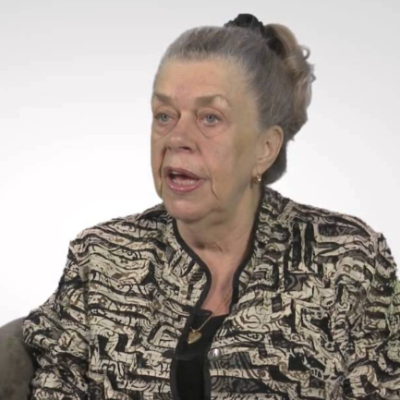Nicolas Joël’s 2008 production of Puccini’s La rondine is back at the Metropolitan Opera for the first time since 2013. The overly sentimental love story centers on Magda, a jaded Parisian courtesan who falls in love with the earnest and respectable country boy Ruggero on his first night in Paris. She soon goes to live with him in a cottage in Nice, only to later abandon him and return to her former protector when she realizes Ruggero’s family will never approve of her once they learn of her checkered past. Magda is the rondine (swallow) of the title, the little bird who flies toward the sun.
The opera was initially commissioned in 1913 as an operetta by the directors of Vienna's Carltheater, but Puccini, having little interest in that genre, fashioned it as a commedia lirica, with music throughout and no spoken dialogue. A longtime outlier in the composer’s oeuvre, it is a flawed, far from revered work, although its popularity appears to have grown somewhat since the turn of this century.
Librettist Giuseppe Adami, who would later collaborate with Puccini on Il tabarro and Turandot, set the story in the mid-1800s. This Met production updates the action to the 1920s, and the staging – enhanced by Ezio Frigerio’s sumptuous art deco sets and Franca Squarciapino’s fanciful costumes – presents a colorful, romantic vision of lifestyles in Paris and the French Riviera in Les Années folles. With echoes (but without the depth) of La traviata and La bohème in a weak, unimaginative libretto, the opera comes off as a dramatically lightweight work. And while the music has some enchanting aspects – an abundance of Viennese waltzes, traces of tango, a fox trot and a graceful love theme – the score is less than totally captivating. The single famous aria, “Chi il bel sogno di Doretta”, is sung by Magda a few minutes after the start of Act 1, and nothing comparable is heard in the opera's remaining two hours.
Vocally, this revival was highly satisfying. Dramatically, however, the results were more mixed. As the titular heroine, soprano Angel Blue dominated the cast. She sang beautifully, with gorgeous sound, ample emotion and liquid phrasing, but with her strong stage presence totally eclipsing the more vulnerable aspects of Magda’s mercurial character, she failed to be sufficiently convincing. Making his Met debut, tenor Jonathan Tetelman revealed a bright, golden tenor as Ruggero, with great ardor and gorgeous Italian diction, succeeding in conveying his character’s youthful, doe-eyed ardor.
In two other company debuts, soprano Emily Pogorelc and tenor Bekhzod Davronov portrayed the light-hearted couple Lisette and Prunier, a comic counterpart to Magda and Ruggero. Pogorelc offered a well-sung, lively portrayal of Lisette, Magda’s maid, and Davronov as Magda’s poet friend Prunier was charming and pleasant, with a well-focused tenor. Alfred Walker brought appropriate authority and an agile bass-baritone to the role of the banker Rambaldo, Magda’s keeper, to whom she returns after fleeing Ruggero.
Led with skill and sensitivity by Speranza Scappucci, the Met Orchestra delivered refined and fluid playing, suitably effervescent in the lighter moments, and appropriately dramatic in the more angst-driven episodes of Puccini's modernistically tinged score.




